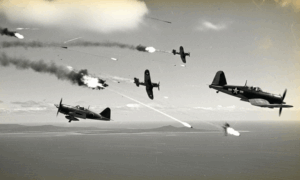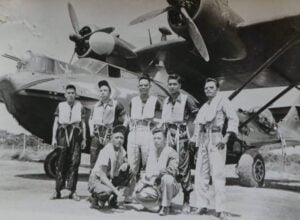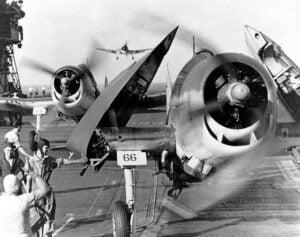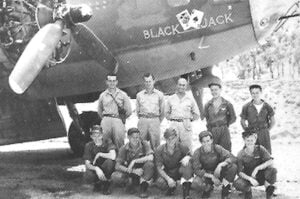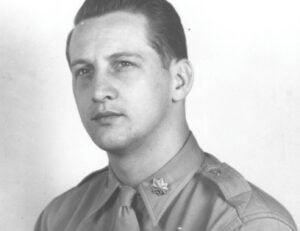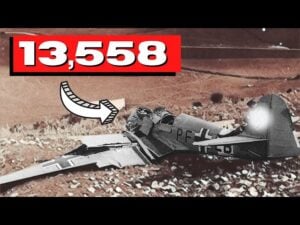Watch Rare Footage of P‑51 Mustang Pilots Escorting Bombers in WWII Dogfights Over Germany
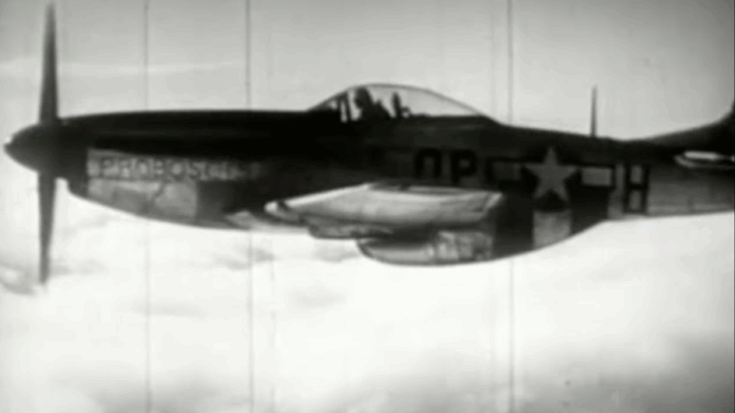
EFP Network / YouTube
In the early hours of February 24, 1944, ground crews at RAF Leiston prepared aircraft under a cold, misty sky. It was part of what would later be called “Big Week”—a concentrated series of Allied air raids against German military industry. Pilots and crews moved through the fog, heading for their stations. Among them was First Lieutenant Robert “Lucky” Parker of the 357th Fighter Group, just 22 years old, already credited with five victories. Alongside him stood his wingman, Second Lieutenant Carlos Reyes, snapping a photo before takeoff.
Their aircraft, the newly introduced P-51B Mustang, had become vital to long-range escort missions. Their job that day was simple in purpose but difficult in execution: protect the bomber formations as they flew deep into German territory to strike aircraft factories in Schweinfurt. Soon, the Mustangs lifted off the rain-soaked airstrip, heading east into cold skies.
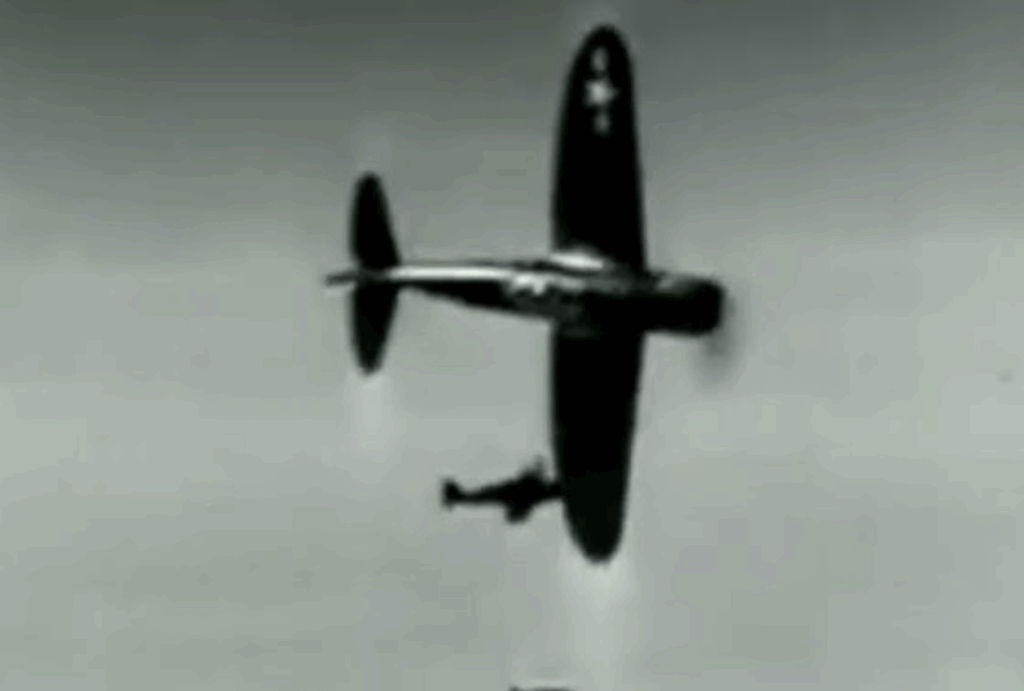
Close Formation and First Contact
At high altitude, Parker and Reyes joined a formation of over 800 heavy bombers—B-17s and B-24s—flying tightly together. Parker took position beneath one bomber called Liberty Bell, exchanging a wave with the gunner through the glass. The sky quickly turned hostile as black clouds of anti-aircraft fire burst around them. Then came the fighters—over 20 German interceptors sighted at low position. Parker dropped his fuel tanks, rolled his plane, and dove in.
He quickly scored a hit on a Messerschmitt Bf 109 that had broken toward the bombers. The enemy aircraft shattered under fire. But the fight was far from over. German Focke-Wulf 190s struck with quick attacks and climbed away. One of them hit Reyes’s aircraft. Losing altitude and control, Reyes announced he was bailing out. Parker broke orders and stayed with him, watching until the parachute opened far below.
Final Attacks and the Long Flight Home
Parker rejoined the bombers as Schweinfurt burned below. With fuel low, he still managed to save a struggling B-24, diving on two interceptors and driving them off. By the time they reached the Rhine River, parachutes dotted the sky and bomber gaps showed how many were lost.
Back at base, Reyes was listed missing. Parker, now with seven victories, sat silently at dinner. His hands shook. The war had changed him—and so many others who flew through fire to see another day.
Keep going for the video below:














